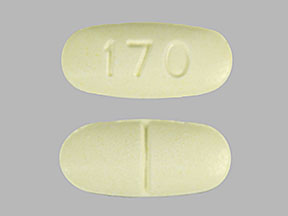Lorcet Plus Interactions
There are 678 drugs known to interact with Lorcet Plus (acetaminophen / hydrocodone), along with 19 disease interactions, and 1 alcohol/food interaction. Of the total drug interactions, 217 are major, 450 are moderate, and 11 are minor.
- View all 678 medications that may interact with Lorcet Plus
- View Lorcet Plus alcohol/food interactions (1)
- View Lorcet Plus disease interactions (19)
Most frequently checked interactions
View interaction reports for Lorcet Plus (acetaminophen / hydrocodone) and the medicines listed below.
- Ambien (zolpidem)
- citalopram
- Cymbalta (duloxetine)
- Flexeril (cyclobenzaprine)
- furosemide
- gabapentin
- ibuprofen
- Lantus (insulin glargine)
- Lasix (furosemide)
- lisinopril
- lorazepam
- Lyrica (pregabalin)
- meloxicam
- metformin
- metoclopramide
- metoprolol
- Neurontin (gabapentin)
- Nexium (esomeprazole)
- omeprazole
- Phenergan (promethazine)
- Plavix (clopidogrel)
- potassium chloride
- prednisone
- Protonix (pantoprazole)
- simvastatin
- Singulair (montelukast)
- tramadol
- trazodone
- Xanax (alprazolam)
- Zanaflex (tizanidine)
Lorcet Plus alcohol/food interactions
There is 1 alcohol/food interaction with Lorcet Plus (acetaminophen / hydrocodone).
Lorcet Plus disease interactions
There are 19 disease interactions with Lorcet Plus (acetaminophen / hydrocodone) which include:
- alcoholism
- liver disease
- impaired GI motility
- infectious diarrhea
- prematurity
- acute alcohol intoxication
- drug dependence
- hypotension
- intracranial pressure
- respiratory depression
- gastrointestinal obstruction
- PKU
- adrenal insufficiency
- liver disease
- renal dysfunction
- seizure disorders
- urinary retention
- arrhythmias
- biliary tract disease
More about Lorcet Plus (acetaminophen / hydrocodone)
- Compare alternatives
- Drug images
- Latest FDA alerts (11)
- Side effects
- Dosage information
- During pregnancy
- Drug class: narcotic analgesic combinations
Related treatment guides
Drug Interaction Classification
| Highly clinically significant. Avoid combinations; the risk of the interaction outweighs the benefit. | |
| Moderately clinically significant. Usually avoid combinations; use it only under special circumstances. | |
| Minimally clinically significant. Minimize risk; assess risk and consider an alternative drug, take steps to circumvent the interaction risk and/or institute a monitoring plan. | |
| No interaction information available. |
Further information
Always consult your healthcare provider to ensure the information displayed on this page applies to your personal circumstances.


